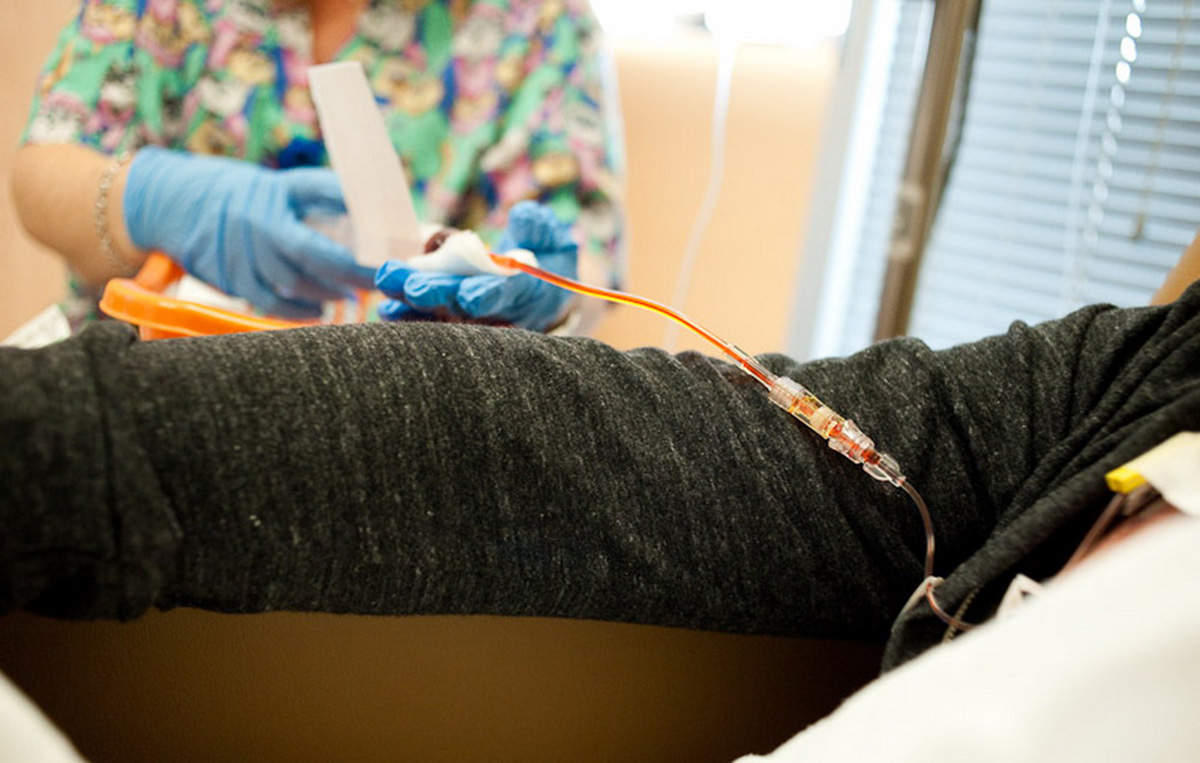Table of Contents
Four drugs are dominantly used in the treatment of colorectal cancer, often in combination.
5-Fluorouracil is more commonly referred to simply as 5-FU, and is a frequently used chemotherapy drug for colorectal cancer patients. Often given together with leucovorin, a vitamin-like drug, 5-FU has been used for around 40 years now. Its side effects include an increased chance of getting infections, heart problems, tiredness and breathlessness, easy bruising, nausea and vomiting, diarrhea, mouth sores and ulcers, soreness, and high uric acid levels.

Patients who experience chest pain or have diarrhea for longer than three days should always inform their doctors. If you receive 5-FU, you may not experience the hair loss often associated with chemo. You may lose your appetite, are at a slightly increased risk of heat attack, and become (temporarily) infertile.
Capecitabine, also available under the brand name Xeloda, is a pill. It is associated with a risk of infection, fatigue and breathlessness, and bruising more easily. Nausea and vomiting, diarrhea, and mouth ulcers are also relatively common side effects of this drug. Rarer side effects are much like those of 5-FU, though Capecitabine is not linked to heart problems.
Irinotecan, also known as Campto, is a drug specifically used for bowel cancer and is administered intravenously. Its side effects can include increased sweating, saliva production, and tears. Since severe diarrhea is not uncommon, patients may also receive anti-diarrheal drugs. Liver changes, menstrual irregularities, and infertility are less common side effects that are usually temporary. The other side effects — like nausea and hair thinning — are common to most chemotherapy treatments.
Oxaliplatin (Eloxatin) is based on platinum and, again, given by IV drip. Besides your usual chemotherapy side effects, patients might experience tingling, numbness, back pain and taste changes. It is not safe for use during pregnancy or breastfeeding. Mood changes, inflammation of the pancreas, and kidney damage are rare side effects, and some patients are allergic to the drug.
Chemotherapy is given in cycles. After a period of treatment, a rest period allows the patient's body to recover. A cycle usually lasts between two and four weeks, and patients can expect multiple cycles.
Self-Care During Chemotherapy Treatment
How well do patients cope with chemotherapy? That largely depends on the individual. All chemo patients can expect to experience some side effects, and most will need to take it easy during their treatment and the rest period. Those who are feeling relatively well can generally work, as long as their schedule allows them to take time out when they do feel ill.
It is important that a patient's medical team is consulted before the use of medications. Medication taken for the use of chronic conditions should be reviewed with the team prior to chemo, while a doctor should always be asked before a chemo patient uses over-the-counter drugs. Medication that specifically addresses chemo side effects, including anti-nausea and anti-diarrheal medications, may be prescribed.
While sex is OK during chemotherapy treatment, careful use of condoms is essential during and after the treatment. The drugs can affect a patient's infertility adversely, but careful condom use is essential for patients of both sexes. This is because chemotherapy treatment makes pregnancy unsafe, and can alter a male patient's sperm. In addition, traces of the drugs found in a patient's bodily fluids could harm their partners. Some people find that chemo sends their libido packing altogether, while men sometimes experience erectile problems during and after the treatment.
See Also: Colon (Colorectal) Cancer: Risks and Prevention Tips
Permanent infertility is not very common after colorectal cancer, but patients may wish to consider freezing their gametes prior to the treatment just in case. Those who have young children will want to arrange for additional childcare, particularly during and right after chemotherapy sessions.
Cancer is always nerve-wrecking, and patients as well as their loved ones may benefit from counseling to help them cope.
- Photo courtesy of Blausen Medical Communications, Inc. by Wikimedia Commons : en.wikipedia.org/wiki/File:Blausen_0246_ColorectalCancer.png
- Photo courtesy of Stephen Dickter by Flickr : www.flickr.com/photos/sdickter/3664201526
- www.cancerresearchuk.org/cancer-help/about-cancer/treatment/cancer-drugs/fluorouracil
- www.cancerresearchuk.org/cancer-help/about-cancer/treatment/cancer-drugs/capecitabine
- www.cancerresearchuk.org/cancer-help/about-cancer/treatment/cancer-drugs/irinotecan
- www.cancerresearchuk.org/cancer-help/about-cancer/treatment/cancer-drugs/oxaliplatin
- www.cancer.net/cancer-types/colorectal-cancer/treatment-options


Your thoughts on this